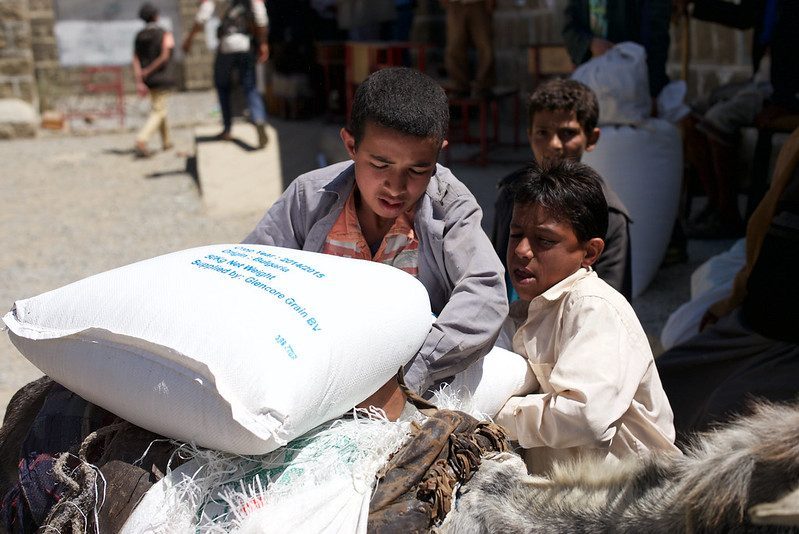The Norwegian Refugee council said Yemen has witnessed more than a 50% decrease in civilian casualties during the first month of the truce.
Qatar has welcomed a United Nations announcement to extend a truce in Yemen for an additional two months, a ministry statement said on Thursday.
The Gulf state’s Ministry of Foreign Affairs (MOFA) said Doha hopes the extension of the ceasefire paves the way for a peaceful resolution to Yemen’s worsening crisis.
“The Ministry also renews the State of Qatar’s call for resolving the Yemeni crisis in line with the GCC initiative and UN Security Council resolutions, especially resolution no. 2216,” added MOFA.
The UN initially announced a two-month ceasefire on 2 April, the first to take place since 2016 following years of escalations. This was extended on Thursday, shortly before its expiry, raising hope in the war-torn country, where years of conflict has led to “the world’s worst humanitarian crisis.”
“The truce represents a significant shift in the trajectory of the war and has been achieved through responsible and courageous decision making by the parties,” said UN Special Envoy for Yemen Hans Grundberg on Thursday.
Since 2015, Yemen has been a battle ground between Iran-backed Houthi rebels and the Saudi-led coalition, which supports the internationally-recognised government, formerly led by Abedrabbo Mansour Hadi’s government.
The announcement of the truce followed a transfer of power from Hadi to a presidential leadership council. The former leader also dismissed his deputy Ali Mohsen Al-Ahmar.
The ceasefire also included the establishment of two weekly commercial flights between Sanaa, Amman, and Cairo. Additionally, one provision of the truce allowed 18 fuel vessels to enter the Houthi-controlled port of Hodeida.
The Houthi rebels had captured the port city at the start of the war before seizing Yemen’s capital, Sanaa.
US President Joe Biden also welcomed the announcement, urging all sides to work to achieve “a comprehensive and inclusive peace process.”
“Our diplomacy will not rest until a permanent settlement is in place,” said Biden.
The news came as the Houthis this week reopened roads on the outskirts of the besieged city of Taiz, though this remains a major issue in the conflict as warring sides have yet to reach an agreement over the lifting of the siege.
Cross border attacks
Meanwhile, at the start of this year, Houthi rebels carried out several drone strikes in Saudi Arabia and the UAE. The attacks were followed by a flare up in Yemen by the Saudi-led coalition, which launched deadly airstrikes in the densely populated capital Sanaa.
According to Save the Children, January was the deadliest month in Yemen since 2018, where one civilian was killed or injured every hour. The Norwegian Refugee council said that Yemen witnessed more than a 50% decrease in civilian casualties during the first month of the truce.
The US has also been accused by rights groups, including Human Rights Watch (HRW), of further escalating the war in Yemen through its additional sale of fighter jets to the UAE at the time.
Figures published by the Associated Press (AP) say that the war has killed more than 150,000 people since it started, including 14,500 civilians.
This has created the world’s worst humanitarian crisis, where more than 14 million people in Yemen – 80% of the population – are in acute need of humanitarian assistance. More than three million people have also been displaced.
UN spokesman Stephane Dujarric said aid agencies need $4.28 billion to assist Yemenis in the war-torn country, noting that the organisation was only able to secure 26% of the required amount.







